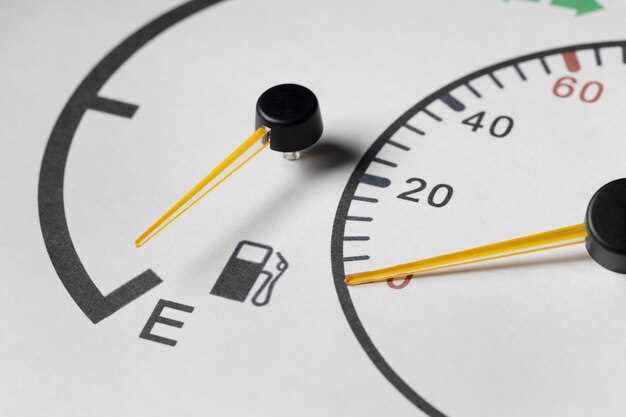

The topic of diesel modification laws is increasingly relevant in today’s automotive landscape, as numerous regulations vary significantly from state to state. Different regions have adopted distinct approaches to diesel emissions and modifications, making it essential for vehicle owners and enthusiasts to understand the legal framework governing their specific location. This guide aims to provide a comprehensive overview of the varying laws pertaining to diesel modifications across the United States.
Diesel engines are known for their power and efficiency, but modifications can lead to significant increases in emissions, prompting regulatory responses from state governments. While some states adopt a more lenient stance, allowing for various enhancements and performance upgrades, others impose strict restrictions that can impact vehicle functionality and legality. Understanding these laws is crucial for complying with local regulations and ensuring that modifications do not result in hefty fines or penalties.
In this guide, we will delve into the specific diesel modification laws in each state, highlighting key differences, enforcement practices, and the potential consequences of non-compliance. By equipping yourself with this knowledge, you can make informed decisions about your diesel vehicle modifications while staying within the legal boundaries set forth by your state.
State-Specific Regulations Impacting Diesel Modifications
Understanding the various state-specific regulations that govern diesel modifications is crucial for vehicle owners and enthusiasts. Each state has its own set of laws that can significantly influence how and what modifications can be legally made to diesel engines. Below is a guide to help navigate some key regulations in different states.
- California: Known for stringent emissions standards, California restricts modifications that increase emissions. Any alterations to the diesel engine must comply with California Air Resources Board (CARB) standards. Commonly banned modifications include removing the diesel particulate filter (DPF) and altering the exhaust system.
- Texas: Texas laws allow for more flexibility compared to California. While there are emissions regulations in urban areas, rural regions may have fewer restrictions. However, vehicle owners should still be cautious about maintaining compliance with state and federal emissions laws.
- New York: New York’s Department of Environmental Conservation enforces strict emissions testing, impacting diesel modifications. Vehicle owners must keep their modifications within the limits set forth by the state and ensure they pass inspection regularly to avoid penalties.
- Florida: Florida has a more lenient approach regarding diesel modifications, mainly focusing on the safety aspects. However, vehicle owners are still required to adhere to federal EPA regulations, particularly regarding emissions control components.
- Illinois: Illinois imposes regulations that require emissions testing for diesel vehicles. Modifications that compromise emissions control systems, such as tampering with the EGR system or removing the DPF, can lead to fines and vehicle impoundment.
It is essential for diesel vehicle owners to familiarize themselves with their state’s laws, as violations can result in significant consequences. Consulting local resources or environmental agencies can provide further guidance on permissible modifications and compliance requirements.
- Research your state’s specific diesel modification laws.
- Consult with certified mechanics familiar with state regulations.
- Ensure all modifications are documented and compliant with state emissions tests.
- Stay updated on any changes to laws that may impact diesel modifications in your state.
Emissions Standards and Compliance for Diesel Vehicles

Emissions standards for diesel vehicles vary significantly from state to state, reflecting local environmental concerns and regulatory frameworks. These laws aim to mitigate the impact of nitrogen oxides (NOx), particulate matter (PM), and other pollutants that diesel engines commonly produce. Each state establishes its regulations, often influenced by federal guidelines issued by the Environmental Protection Agency (EPA).
Compliance with emissions standards is crucial for diesel vehicle owners and operators. Vehicles must typically undergo regular inspections to ensure they meet the required emissions thresholds. Some states employ stringent testing methods, including onboard diagnostics (OBD) checks, which help identify any deficiencies in the emissions control system of diesel engines.
In recent years, several states have transitioned to more rigorous emissions standards, particularly in urban areas where air quality is a pressing issue. For example, states such as California have implemented advanced regulations, including the use of advanced fuel formulations and specific after-treatment technologies that enhance emissions control. These laws aim to achieve lower emissions levels while maintaining vehicle performance.
Additionally, non-compliance with emissions laws can lead to significant penalties, including fines and restrictions on vehicle registration. Diesel vehicle owners are encouraged to stay informed about their state’s specific regulations and ensure their vehicles are equipped with the necessary technologies to meet compliance requirements.
In conclusion, understanding the emissions standards and compliance laws governing diesel vehicles in each state is essential for owners and operators. Meeting these standards not only aids in environmental protection but also ensures the longevity of diesel vehicles in a rapidly evolving regulatory landscape.
Legal Consequences of Non-Compliance with Diesel Laws

Compliance with diesel modification laws is essential for vehicle owners and operators to avoid legal repercussions. Each state enacts specific regulations that govern diesel emissions, modifications, and overall vehicle performance. Failing to adhere to these laws can lead to significant penalties, including fines, vehicle impoundment, and even criminal charges in severe cases.
Firstly, monetary fines often accompany violations of diesel modification laws. The penalties can vary widely depending on the state, with some jurisdictions imposing fines reaching thousands of dollars. Repeat offenders may face increased fines and stricter enforcement actions. Additionally, companies that operate fleets of diesel vehicles can incur substantial costs if found non-compliant, affecting their bottom line.
Moreover, non-compliance can result in the inability to legally operate a vehicle. Authorities may issue citations leading to temporary suspension of registration or denial of renewal applications for vehicles that do not meet emission standards. This can severely disrupt business operations, particularly for delivery services and other industries reliant on diesel engines.
In extreme circumstances, individuals or companies may face criminal charges for willful violations of diesel laws. This is particularly relevant when modifications intended to reduce emissions are deemed fraudulent or when owners attempt to evade regulatory scrutiny. A criminal conviction can lead to harsher penalties, including jail time, in addition to financial repercussions.
It is crucial for diesel vehicle owners to stay informed about the specific laws in their state. Consultation with legal experts or industry guides can provide necessary insights into compliance requirements. By understanding the implications of failing to adhere to diesel modification laws, vehicle operators can better navigate the legal landscape and protect themselves from severe consequences.







